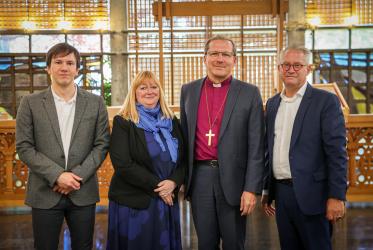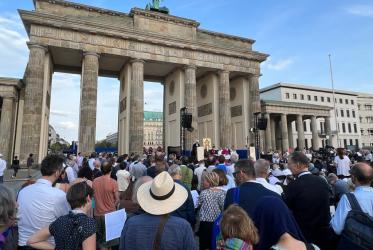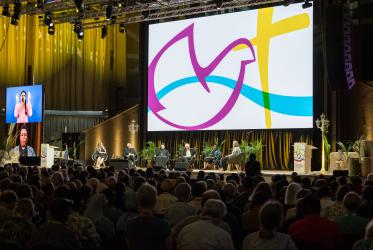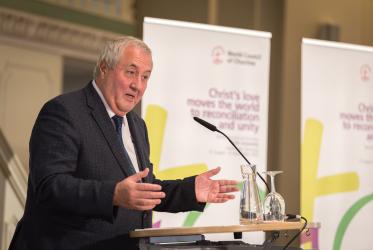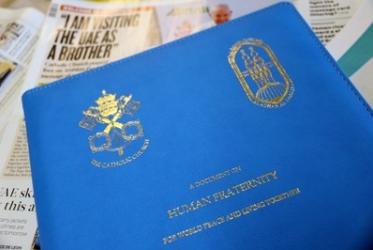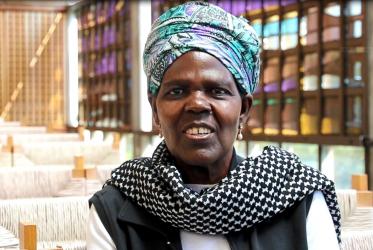Displaying 1 - 20 of 51
29 September 2023
"A world free from nuclear weapons is possible"
11 September 2023
Dr Abuom reflects on women of faith as healers of creation
05 October 2021
Archbishop Anastasios receives Klaus Hemmerle 2020 Prize
19 February 2020
WCC well-represented in Religions for Peace leadership
07 October 2019
Religions for Peace calls for "shared well-being”
26 August 2019
Religions for Peace assembly convenes in Lindau
19 August 2019
WCC moderator “A call for equality in God’s house”
08 April 2019
A moment in ‘Time’: an interreligious vision in Erlangen
20 December 2018
